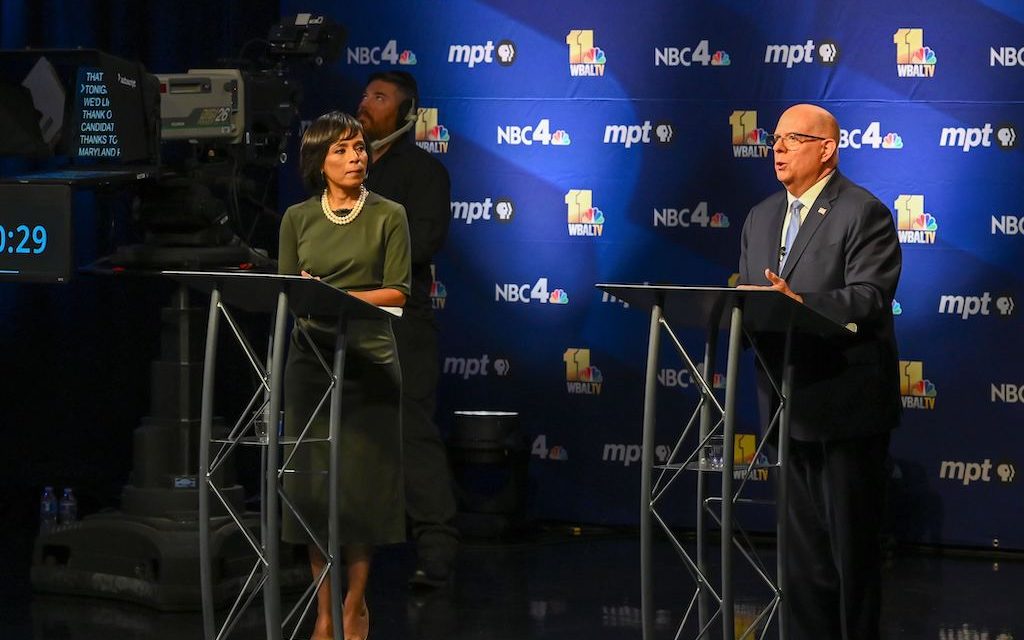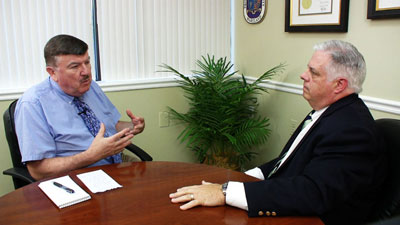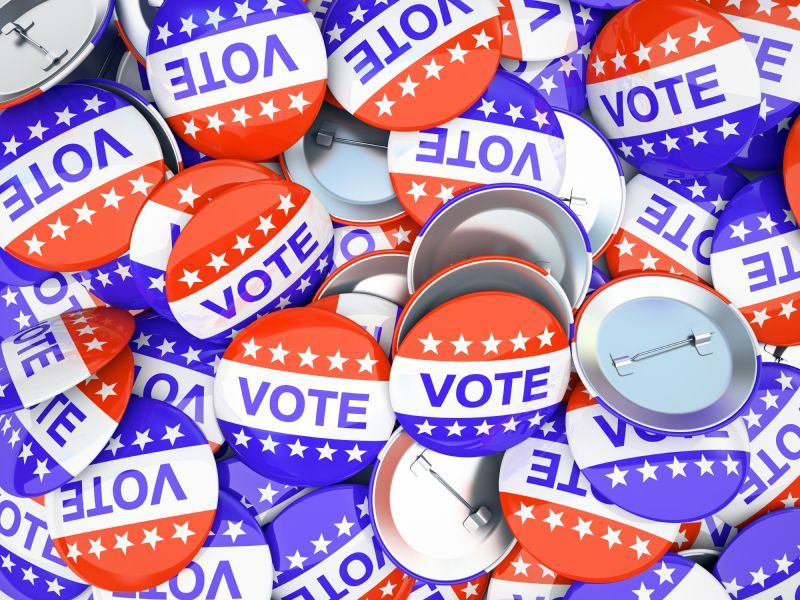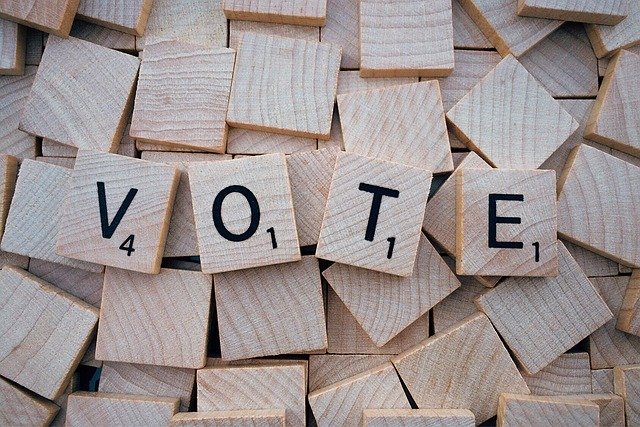By JACK BOWMAN
OWINGS MILLS, Md. – The issue of Republican Senate hopeful Larry Hogan’s party allegiance took center stage in the first, and perhaps only, debate with Democratic opponent Angela Alsobrooks on Thursday.
As he has throughout his campaign, Hogan, who moderator Chuck Todd mentioned was recruited to run by Senate Minority Leader Mitch McConnell, R-Kentucky, spent much of the debate distancing himself from the GOP on several issues and attempting to establish himself as an independent.
“You’re going to hear nothing but red versus blue,” Hogan, the former Maryland governor, said early in the debate, which will be televised on Maryland Public Television, WBAL in Baltimore, and WRC in Washington Thursday at 7 p.m. “I care a lot more about the red, white, and blue.”
Hogan also pointedly rejected the premise of being a party-line Republican, saying that he has a “proven track record” of standing up to former President Donald Trump, McConnell, and the Republican Party. He also said that the country needs more “mavericks” in the Senate.
Alsobrooks, for her part, asserted that Hogan’s stance on abortion, and his promises to support the codification of Roe v. Wade, wouldn’t matter if the Republicans gain control of the Senate.
“I believe the governor when he said that he would like to vote with Roe,” said Alsobrooks, currently Prince George’s County executive. “But, you know what? The fact is, if the Republicans have a majority in the Senate, there will be no vote on Roe.”
Foreign policy
The through line of partisanship continued as the debate shifted to foreign policy specifically the Israeli-Palestinian conflict.
When questioned about her stance on the conflict, Alsbrooks echoed the position held by many national-level Democrats, emphasizing both her support for Israel and her concerns surrounding the humanitarian crisis in Gaza and the need for a two-state solution.
“I believe at this moment, we have an obligation to make sure that we’re getting those hostages home to their families,” Alsobrooks said, referring to hostages taken by Hamas during an attack on Israel on Oct. 7 last year, “and that we get to a ceasefire, making sure that…we get aid into Gaza for the Palestinians who are suffering.”
Hogan used his time also expressing unequivocal support for Israel, a view he has repeated throughout the campaign. He noted he did not differ with the retiring Democrat whose seat he and Alsobrooks are campaigning for.
“I’m going to be a strong supporter of Israel, as I always have been,” Hogan said, “and I’m going to be more like a champion for Israel, like Ben Cardin.”
The Supreme Court
As the debate shifted to the topic of the Supreme Court, Alsobrooks pushed for reform of the nation’s highest court, referencing term limits or expansion of the number of justices.
“I think we’re going to have to do something to reform the Supreme Court,” Alsobrooks said. “Again, looking at the decisions they’ve made, everything from overturning Roe, I think there are ethical problems with the Supreme Court.”
Alsobrooks said, “this is another place where me and Mr. Hogan disagree.”
Hogan did draw a contrast between his position and that of his opponent, saying that the pushes for reform are politically motivated.
“I think if there’s one thing that we should not be politicizing, it’s the Supreme Court,” Hogan said, “and yet it has been politicized by both sides. And I think trying to change the rules to jam things through on a party-line vote is not the right way to go about it.”
Abortion
As it has been throughout the campaign, abortion was a major issue in the debate.
One difference between the two candidates was their strategies for passing legislation to codify Roe v. Wade, the right to an abortion.
Alsobrooks advocated abolishing the filibuster, a Senate procedure that allows debate on a measure to continue until 60 senators vote to stop it. Many critics of the Senate, including some senators, consider the filibuster an impediment to passing bills that have the support of a majority of lawmakers.
“We’ve seen the filibuster has been used in ways that have been very destructive, and it really has not been in the interest of the people,” Alsobrooks said.
Hogan, in response, cited bipartisanship in his opposition to removing the filibuster.
“I like the idea of continuing to have to find people across the aisle, find that bipartisan compromise,” Hogan said.
He also compared Alsobrooks’ stance to that of Trump, saying that both of them want to change “long-standing rules that require bipartisan cooperation.”
Gun control and crime
Both candidates, in their general comments on gun control, said they supported “common sense gun legislation.”
Hogan, for his part, said he would support a “bipartisan, commonsense assault weapons ban.”
He also accused Alsobrooks of pulling safety officers out of schools, a point that Alsobrooks disputed.
Alsobrooks said that she would be in favor of “eliminating assault weapons” and “removing ghost guns from our streets.”
She also said the former governor “in fact, vetoed legislation that would have created a waiting period for long guns and outright refused to sign the ban on those guns.”
On the issue of crime, Hogan trumpeted his “refund the police initiative,” while saying that Prince George’s County has cut its police force under Alsobrooks’ leadership. Hogan charged that “crime is out of control” in the county.
Alsobrooks insisted otherwise, saying that she “oversaw a 50% lowering in crime.”
“I not only support law enforcement, I was law enforcement,” Alsobrooks said.
Personal voting
In perhaps her most direct attack on Hogan’s embrace of bipartisanship, Alsobrooks took aim at Hogan’s write-in vote for Ronald Reagan in the 2020 election and his refusal to vote for Democratic presidential candidate Kamala Harris in the 2024 election despite the former governor’s opposition to Trump.
“For a person who says he could see a bipartisan way forward,” Alsobrooks said, “but was unable to do the most bipartisan thing ever in an election where he says he despises (Trump), but cannot bring himself to even vote for Vice President Harris … will have forfeited the chance to vote in three different elections rather than stand up, do the right thing, choose a tough vote and vote for a Democrat.”
Hogan explained his reasoning: “I’ve never voted for someone I didn’t believe in.”
Hogan said, “that’s why we have the ability to write in and take whatever decision you make.”








Recent Comments